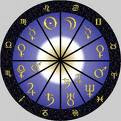
Is there any conceivable way that the celestial location of stars, planets, and nebulae at the time of one’s birth could influence an individual’s personality, career, health, marriage and a host of other personal events?
The origin of astrology lies in pagan superstition. But does it work? Until the sixteenth century, the earth was believed to be the center of the universe, with the sun, moon, planets and stars revolving around this all-important center of activity.
But the heliocentric universe of Copernicus (1543) dethroned the earth. And since then, the advance of astronomical knowledge has relentlessly pushed the earth farther and farther from any privileged position in the cosmos. The sun too, has been demoted to an inconspicuous suburb in a rather unexceptional galaxy, in a relatively small group of galaxies, in a universe of uncounted billions of stars.
In such a universe, it becomes increasingly difficult to believe the heavens were created to have some sort of special influence on the earth and on individual humans in particular. How could such an influence occur? Through gravity? Radiation?
The immense distances encountered in the universe - usually measured in light years - rule out any such influences. The gravitational attraction of the doctor standing at the delivery table would be far greater than the gravitational influence of any star or galaxy, on a new-born baby.
And the radiation form even the brightest star would be thousands of times weaker than a single light bulb in the delivery room.
The conclusion seems inescapable: No known force emanating from the constellations of the heavens could be expected to exert a unique, life-long influence on anyone.
Even if the stars did exert an ever so subtle influence at the time of an individual’s birth, can anyone seriously believe their influence is important when compared to the multitude of much stronger environmental forces on earth that directly affect our lives?
All life on earth is affected by periodic changes in the environment. Such cyclic variations are often the basis for natural rhythms called biological clocks. The most obvious example is the rising and setting of the sun; a daily cycle of light and dark which directly affects the activities of virtually all pants and animals.
The seasons, caused by the earth’s revolution around the sun, also have a marked annual influence on living things. Similarly, the tides, driven primarily by the gravitational attraction of the moon, affect countless creatures in the sea on roughly a 12-hour basis.
Research has demonstrated that man too may be perceptibly influenced by lunar and solar radiation and/or gravitational attraction. However, such celestial cycles operate on all men, regardless of when or where they were born. Indeed, the readjustment of one’s biological clock after a change in environment - as occurs in “jet-lag” - proves that such biological cycles are not immutably fixed. Rather, each persons bio-clock can be revised and reset numerous times throughout one’s life as the environment changes.
There’s no question that biological rhythms and clocks are often linked tot he motions of the sun and moon. But this in no way justifies the belief that astrological signs and the position of the stars, planets, sun or moon at the time of birth can be used to predict one’s future.
The Bible labels the worship of the heavens as idolatry (Deut. 4:15, 19, RSV). Of course, astrology buffs can always claim that they are not really worshipping the heavens; just relying on them for certain “important’ information. Yet the fact remains that astrology has no scientific basis.
The prophet Daniel encountered astrologers in Nebuchadnezzar’s court: “Then came in the magicians, the astrologers, the Chaldeans, and the soothsayers: and I told the dream before them: but they did not make known unto me the interpretation thereof” (Dan.4:7). Daniel found the astrologers totally ineffective. And so have modern-day scientific studies.
“The astrologer is often better able to read his clients wishes than to predict the alleged destiny implicit in the celestial bodies,” said professor of philosophy, Paul Kurtz. “Yet the true believer still insists that astrology is basically true in some mysterious way.”
“There are obviously millions of people who believe this astrology stuff,” said Dr. Linus Pauling, twice a Nobel Prize winner, “and I think it is worthwhile to explain that it has nothing whatever to do with scientific fact.”
In the final analysis, the overwhelming evidence is that astrology is little more than an entertaining form of pseudo-sophisticated superstition.



No comments:
Post a Comment